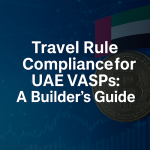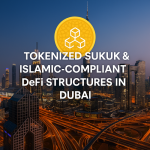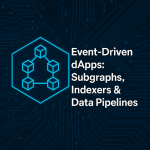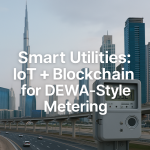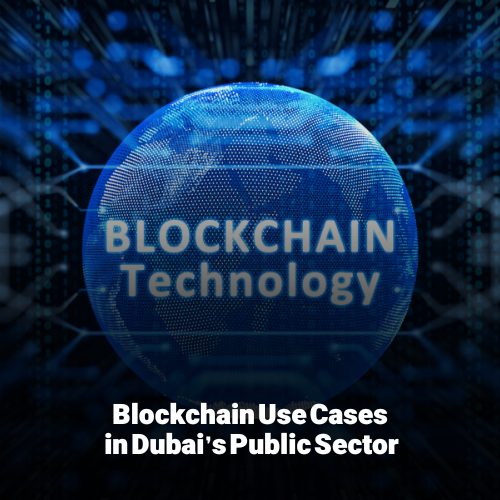Dubai, a city synonymous with innovation and futuristic technology, has consistently embraced cutting-edge solutions to enhance public services and governance. Among these technological advancements, blockchain has emerged as a revolutionary force. The decentralized and transparent nature of blockchain technology aligns with the UAE’s ambitions to create a digital-first government that is efficient, secure, and accountable.
Blockchain technology is the perfect solution to enhance the efficiency, security, and transparency of public services.
Explore 7 blockchain use cases for the government and public sector ↓https://t.co/3jXHM7kjuc
— Chainlink (@chainlink) February 28, 2025
In this article, we will explore how blockchain in Dubai’s public sector is being integrated into , with real-world use cases and examples that illustrate its impact on improving governance, public services, and citizen engagement.
What is Blockchain and Why is It Crucial for Public Sector Innovation?
Before diving down into the benefits of blockchain for the public sector, let’s firstly see what is blockchain. Blockchain technology is a decentralized digital ledger that records transactions across multiple computers. This system ensures that data is secure, transparent, and immutable. That would make it ideal for industries where trust and accuracy are paramount. Unlike traditional databases, blockchain’s decentralized nature eliminates the need for intermediaries, allowing for direct transactions between parties.
Blockchain Benefits for Public Sector
- Transparency and Accountability: Blockchain’s immutable nature ensures that data cannot be altered without consensus, making government records and transactions more transparent and auditable.
- Security: The decentralized and encrypted nature of blockchain enhances the security of sensitive data, reducing the risk of hacking or unauthorized changes.
- Efficiency: By removing intermediaries, blockchain streamlines processes and reduces administrative overhead, making government services faster and more cost-effective.
- Reduced Fraud: Blockchain’s tamper-proof records minimize the potential for corruption, fraud, and errors in government processes.
With its visionary approach to technology, Dubai is leading the way for blockchain adoption by recognizing blockchain as a key enabler of digital governance and is already implementing it in various public sector projects.
Key Blockchain Use Cases in Dubai’s Public Sector
Dubai’s public sector is not just exploring blockchain for theoretical purposes; the city is actively deploying it across a variety of initiatives to enhance efficiency, reduce fraud, and improve public services. Below are some of the prominent use cases of blockchain in Dubai’s public sector.
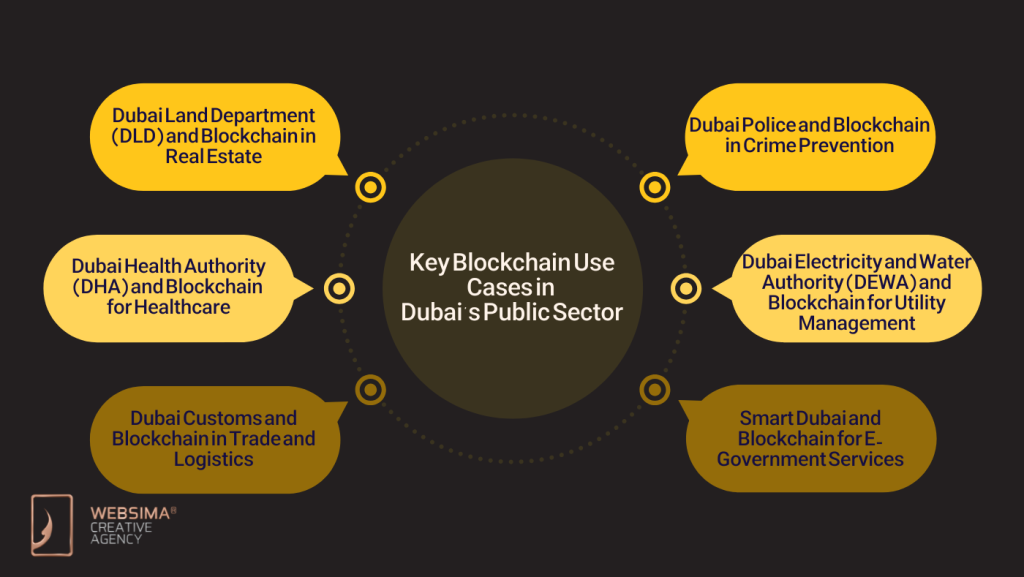
1. Dubai Land Department (DLD) and Blockchain in Real Estate
Dubai’s real estate sector is one of the most vital parts of its economy, with the Dubai Land Department (DLD) playing a crucial role in overseeing property transactions and maintaining land records. Blockchain is revolutionizing how the DLD manages property transactions by enhancing transparency, security, and efficiency.
Blockchain for Property Title Deeds
The Dubai Land Department has launched an initiative to integrate blockchain technology to issue property title deeds. By using blockchain, the DLD ensures that property ownership records are immutable, reducing the chances of fraud and making transactions more secure. This technology ensures that once a title deed is recorded on the blockchain, it cannot be altered or tampered with, offering an unprecedented level of trust.
Streamlining Property Transactions
Blockchain is also being used to streamline the entire property transaction process, from buying and selling to the transfer of ownership. Through blockchain, all parties involved—buyers, sellers, brokers, and government agencies—can track the progress of a property deal in real time. This reduces delays, removes the need for paper-based contracts, and enhances overall operational efficiency.
2. Dubai Police and Blockchain in Crime Prevention
#Cardano fam, massive real world adoption update by @Cardano_CF!
One of the wealthiest nations in the world, UAE is employing @Cardano to secure its Criminal investigations!
The Dubai Police presented at the World Police Summit in Dubai a Cardano based pilot project. The… pic.twitter.com/zjzXOJZCcM
— Chris O Cardano DRep (@TheOCcryptobro) March 10, 2024
The Dubai Police force is utilizing blockchain to enhance law enforcement and improve public safety. Blockchain’s ability to offer real-time, immutable records has significant applications for police investigations, evidence management, and inter-agency collaboration.
Secure Evidence Management
Dubai Police are implementing blockchain to track and authenticate evidence used in criminal investigations. With blockchain, evidence, such as documents, photos, and videos, are securely stored in a decentralized ledger. This ensures that evidence cannot be tampered with or altered, providing a solid chain of custody that can withstand scrutiny in court.
Criminal Record Management
Another promising application of blockchain is for managing criminal records. Using blockchain, the Dubai Police can securely store criminal records that are accessible only to authorized personnel. This improves the security of sensitive data and ensures that criminal histories are accurate and tamper-proof.
3. Dubai Health Authority (DHA) and Blockchain for Healthcare
Dubai is increasingly adopting blockchain technology to improve healthcare services through enhanced data security, interoperability, and patient privacy. The Dubai Health Authority (DHA) has been a pioneer in this field. DHA is leveraging blockchain to create a more efficient, transparent, and secure healthcare system.
Blockchain for Patient Data Management
Blockchain’s ability to securely store patient data has major implications for healthcare management. The DHA is working on integrating blockchain into its healthcare infrastructure. This is beneficial to ensure that patient records are accurate, accessible, and protected from unauthorized access. With blockchain, patients can give consent to share their medical data, ensuring that only authorized doctors and medical staff have access to their health information.
Streamlined Healthcare Transactions
Blockchain is also usable to streamline the billing process in healthcare. By using smart contracts, healthcare providers and insurance companies can automate claims and payments, reducing administrative burdens and ensuring transparency in healthcare transactions.
4. Dubai Electricity and Water Authority (DEWA) and Blockchain for Utility Management
The Dubai Electricity and Water Authority (DEWA) is exploring blockchain technology for improving the management and distribution of utilities. As the demand for sustainable and efficient energy management increases, blockchain offers innovative solutions for enhancing transparency, efficiency, and sustainability in the energy sector.
Blockchain for Energy Trading
DEWA is exploring blockchain as a platform for decentralized energy trading. Using blockchain, consumers and producers of energy can directly trade electricity without relying on intermediaries. This could significantly lower energy costs while also promoting the use of renewable energy sources like solar power, which Dubai is actively investing in.
Smart Grid and Metering
Blockchain can also improve the management of smart grids and metering systems. That would ensure that energy consumption data is securely recorded and easily accessible to both consumers and utility providers. This level of transparency helps ensure that customers are accurately billed and can track their energy usage in real time.
5. Dubai Customs and Blockchain in Trade and Logistics
One of the world’s largest trade hubs is Dubai, and its port facilities are critical to global commerce. Dubai Customs is leveraging blockchain technology to streamline trade and logistics processes, making them more transparent, efficient, and secure.
Blockchain for Supply Chain Transparency
Blockchain is being used to create a transparent, real-time view of the supply chain for goods coming in and out of Dubai. By using blockchain, Dubai Customs can track the movement of goods from their origin to their final destination, reducing the risk of fraud and ensuring the authenticity of goods. This is particularly useful for industries like pharmaceuticals and luxury goods, where counterfeiting and fraud can be a concern.
Streamlining Customs Processes
Customs processes in Dubai are traditionally paper-intensive and prone to delays. By implementing blockchain, Dubai Customs can digitize and automate customs declarations, reducing processing time and improving the speed of cross-border trade. This not only enhances efficiency but also lowers costs for businesses involved in global trade.
6. Smart Dubai and Blockchain for E-Government Services
Smart Dubai, the city’s initiative to become the happiest and smartest city on Earth, is at the forefront of integrating blockchain across various public sector services. The Smart Dubai Office has set a goal to make all government documents and transactions paperless and secure by 2021, and blockchain plays a central role in this vision.
Blockchain for Digital Identity
One of the key areas where usage of blockchain is beneficial is in the creation of a secure and verifiable digital identity for residents and citizens. By using blockchain, Dubai’s residents can have a single, tamper-proof identity that can be used for a wide range of government services—from healthcare and education to transportation and legal documents.
E-Voting and Blockchain in Governance
Blockchain technology also has the potential to revolutionize voting and democratic processes in Dubai. With blockchain-based e-voting, the integrity of elections can be ensured, reducing the risk of fraud and ensuring that each vote is securely recorded and counted. This would make Dubai’s democratic processes more transparent and trustworthy.
Challenges of Blockchain Adoption in Dubai’s Public Sector
While blockchain offers tremendous potential, the adoption of the technology within Dubai’s public sector also faces several challenges:
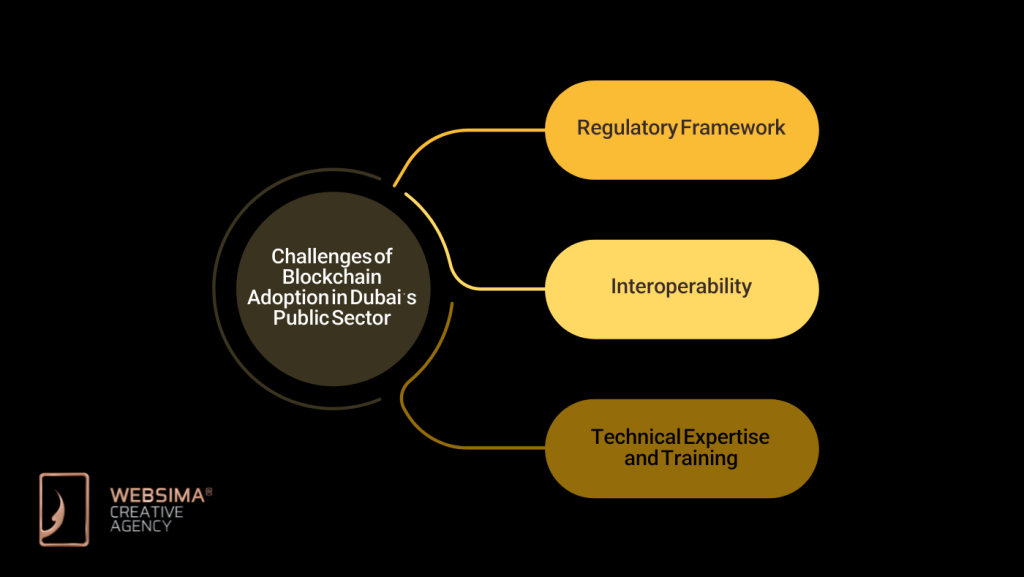
1. Regulatory Framework
Although Dubai is famous for its progressive approach to innovation, blockchain-related regulations are still evolving. Clear legal frameworks and standards are necessary to ensure the smooth integration of blockchain into government services. The government must work to develop laws that address concerns related to data privacy, security, and accountability.
2. Interoperability
Dubai’s public sector operates across various departments and agencies, which may have different technological standards and requirements. Ensuring that blockchain systems are interoperable across various government services is a complex task, requiring careful coordination and standardization.
3. Technical Expertise and Training
Blockchain is still a relatively new technology. As such, there is a need for skilled professionals who can develop, implement, and maintain blockchain solutions within government agencies. Dubai must invest in training and development programs. This is essential to ensure a steady pipeline of talent to support the growing demand for blockchain expertise.
Bottomline
Blockchain technology is playing a transformative role in Dubai’s public sector, enhancing transparency, security, and efficiency across a wide range of services. From real estate and healthcare to law enforcement and trade, blockchain is helping the city create a more secure and streamlined governance system. While challenges remain, particularly in terms of regulation, interoperability, and technical expertise, Dubai’s commitment to embracing blockchain is clear.
Websima, as the leading blockchain service provider in Dubai, is more than happy to help, if you are planning to start a blockchain-based business in Dubai. Blockchain, crypto and web3 web and website development, smart contract programming and development, Blockchain, Web3 and crypto company establishment are just a few out of many services that we provide. Feel free to contact us to book for a free consultation meeting with our talented team.

